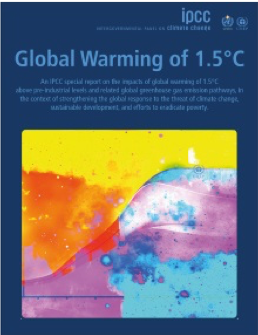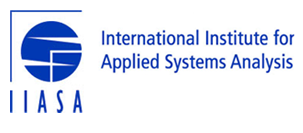Scenario analysis notebooks for the SR15¶
Overview¶
This website presents rendered versions of the Jupyter notebooks used for the assessment of quantitative, model-based climate change mitigation pathways in the IPCC Special Report on Global Warming of 1.5°C (SR15).
The notebooks implement the categorisation of scenarios by climate impact and generate figures, tables, summary statistics, and assessment indicators.
License of the notebooks¶
Copyright 2018-2020 IIASA
The notebooks and the their rendered versions are licensed under the Apache License, Version 2.0 (the “License”); you may not use this file except in compliance with the License. You may obtain a copy of the License at
Unless required by applicable law or agreed to in writing, software distributed under the License is distributed on an “AS IS” BASIS, WITHOUT WARRANTIES OR CONDITIONS OF ANY KIND, either express or implied. See the License for the specific language governing permissions and limitations under the License.
Notebook release 2.0.2¶
The notebooks rendered on this page are based on Release 2.0.2 of the GitHub repository.
The notebooks use the scenario data of Data Release 2.0 of the IAMC 1.5°C Scenario Explorer and Data and refer to the published version of the IPCC Special Report on Global Warming of 1.5°C.
The notebooks are run with pyam Release 0.5.0. A manuscript describing this open-source Python package for integrated-assessment scenario analysis and visualization was published in the Journal of Open Source Software.
Overview of notebooks¶
- Assessment notebooks
- Assessment for statements in the SPM
- Figures and data tables for SPM Figure 3a of emission pathways
- Figures and indicators for SPM Figure 3b of illustrative pathways
- Categorisation of pathways by climate impact and computation of metadata indicators
- Range of assumptions of socio-economic drivers (Figure 2.4)
- Annual global emissions characteristics (Figure 2.6)
- Annual global emissions and absolute annual rates of change (Table 2.4)
- Global characteristics of short-lived non-CO2 emissions (Figure 2.7)
- Effective radiative forcing of short-lived climate forcer (Figure 2.8)
- Cumulative deployment of carbon dioxide removal (Figure 2.9)
- Energy demand and carbon intensity of electricity (Figure 2.14)
- Primary energy supply in illustrative pathways and by category (Figure 2.15)
- Descriptive statistics of global primary energy supply (Table 2.6)
- Electricity generation in illustrative pathways and by category (Figure 2.16)
- Descriptive statistics of electricity generation by fuel (Table 2.7)
- CCS deployment by source and cumulative carbon dioxide stored (Figure 2.17)
- Agricultural non-CO2 emissions (Figure 2.25)
- Global price of carbon emissions and assessment of comparative carbon prices (Figure 2.26)
- Geophysical characteristics of mitigation pathways (Supplementary Material, Table 2.SM.12)
- Sectoral indicators of the pace of transformation (Table 4.1)
- Sectoral indicators (Supplementary Material, Table 4.SM.1)
Scenario ensemble download¶
The scenario ensemble used for this assessment is available for download at https://data.ene.iiasa.ac.at/iamc-1.5c-explorer.
If appropriate reference is made to the data source, it is permitted to use the data for scientific research and science communication. However, redistribution of substantial portions of the data is restricted.
Please read the guidelines and legal code at https://data.ene.iiasa.ac.at/iamc-1.5c-explorer/#/license before redistributing this data or adapted material.
When using the scenario data for any analysis, figures or tables, please clearly state the release version of the scenario ensemble.
Scientific references¶
Scenario analysis notebooks¶
For the Jupyter notebooks containing figure plotting and analysis scripts included in this repository, please cite:
Daniel Huppmann et al.,Scenario analysis notebooks for the IPCC Special Report on Global Warming of 1.5°C. 2018.
Other references¶
For the scientific assessment of the Special Report, please cite:
Joeri Rogelj, Drew Shindell, Kejun Jiang, Solomone Fifita, Piers Forster, Veronika Ginzburg, Collins Handa, Haroon Kheshgi, Shigeki Kobayashi, Elmar Kriegler, Luis Mundaca, Roland Séférian, and Maria Virginia Vilariño.Mitigation pathways compatible with 1.5°C in the context of sustainable development,in “Special Report on Global Warming of 1.5°C (SR15)”.Intergovernmental Panel on Climate Change: Geneva, 2018.
For a high-level description of the scenario ensemble, please refer to:
Daniel Huppmann, Joeri Rogelj, Elmar Kriegler, Volker Krey, and Keywan Riahi.A new scenario resource for integrated 1.5 °C research.Nature Climate Change, 2018.
When using the scenario ensemble data for own analysis, please cite:
Daniel Huppmann, Elmar Kriegler, Volker Krey, Keywan Riahi, Joeri Rogelj, Steven K. Rose, John Weyant, et al.,IAMC 1.5°C Scenario Explorer and Data hosted by IIASA.Integrated Assessment Modeling Consortium & International Institute for Applied Systems Analysis, 2018.
Authors of the scenario ensemble and the notebooks¶
Please refer to the AUTHORS document for the full list of authors of the scenario ensemble and the notebooks in this repository.
Download bibliographic details¶
You can download these citations and the references for all studies that submitted scenarios to the ensemble as Endnote (enl), Reference Manager (ris), and BibTex (bib) format from the GitHub repository.
Dependencies¶
The notebooks included in this repository depend on the pyam package, an open-source Python package for IAM scenario analysis and visualization developed by Matthew Gidden (@gidden) and Daniel Huppmann (@danielhuppmann).
See https://pyam-iamc.readthedocs.io for installation instructions and the full documentation of pyam.
The source code is available at https://github.com/IAMconsortium/pyam.

